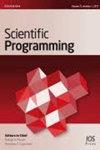Study on Contribution of Different Journal Evaluation Indicators to Impact Factor Based on Machine Learning
4区 计算机科学
Q3 Computer Science
引用次数: 0
Abstract
Sci-Tech journals have long served as platforms for academic communication and the collision of ideas, facilitating advanced inventions and major discoveries in science. The speed of development and future prospects of a field in the current era can often be reflected by the quality and quantity of cutting-edge papers published in Sci-Tech journals within that field. Currently, the impact factor of Sci-Tech journals is a widely recognized journal evaluation index that comprehensively reflects the quality and influence of the journals under evaluation. However, traditional journal evaluation methods based on statistical formulas, while relatively simple and fast, have certain limitations. They are not comprehensive enough and do not support the comparison between journals from different disciplines. In recent times, researchers have delved into using multiple suitable indicators for comprehensive journal evaluation, attempting to understand the role each indicator plays in the evaluation process, such as the rank sum ratio. Our paper presents a new dataset constructed from data from journals across various fields obtained from the China Wanfang Literature Platform. We endeavor to explore a series of novel journal evaluation methods based on machine learning, including deep learning models. With these 9 methods, we aim to determine the contribution of 17 journal evaluation indicators to the impact factor and identify important factors that can further enhance the quality and influence of Sci-Tech journals, which has great guiding significance for the future development of journals.基于机器学习的不同期刊评价指标对影响因子的贡献研究
长期以来,科技期刊一直是学术交流和思想碰撞的平台,促进了科学领域的先进发明和重大发现。一个领域在当今时代的发展速度和未来前景,往往可以通过该领域科技期刊上发表的前沿论文的质量和数量反映出来。目前,科技期刊的影响因子是公认的期刊评价指标,能够全面反映被评价期刊的质量和影响力。然而,基于统计公式的传统期刊评价方法虽然相对简单快捷,但也存在一定的局限性。它们不够全面,也不支持不同学科期刊之间的比较。近来,研究者们开始深入研究使用多种合适的指标进行期刊综合评价,试图了解每个指标在评价过程中所起的作用,如排名总和比。本文介绍了一个新的数据集,该数据集由中国万方数据平台上获取的各领域期刊数据构建而成。我们努力探索一系列基于机器学习(包括深度学习模型)的新型期刊评价方法。通过这9种方法,我们旨在确定17个期刊评价指标对影响因子的贡献,并找出能够进一步提升科技期刊质量和影响力的重要因素,这对期刊的未来发展具有重要的指导意义。
本文章由计算机程序翻译,如有差异,请以英文原文为准。
求助全文
约1分钟内获得全文
求助全文
来源期刊

Scientific Programming
工程技术-计算机:软件工程
自引率
0.00%
发文量
1059
审稿时长
>12 weeks
期刊介绍:
Scientific Programming is a peer-reviewed, open access journal that provides a meeting ground for research results in, and practical experience with, software engineering environments, tools, languages, and models of computation aimed specifically at supporting scientific and engineering computing.
The journal publishes papers on language, compiler, and programming environment issues for scientific computing. Of particular interest are contributions to programming and software engineering for grid computing, high performance computing, processing very large data sets, supercomputing, visualization, and parallel computing. All languages used in scientific programming as well as scientific programming libraries are within the scope of the journal.
 求助内容:
求助内容: 应助结果提醒方式:
应助结果提醒方式:


